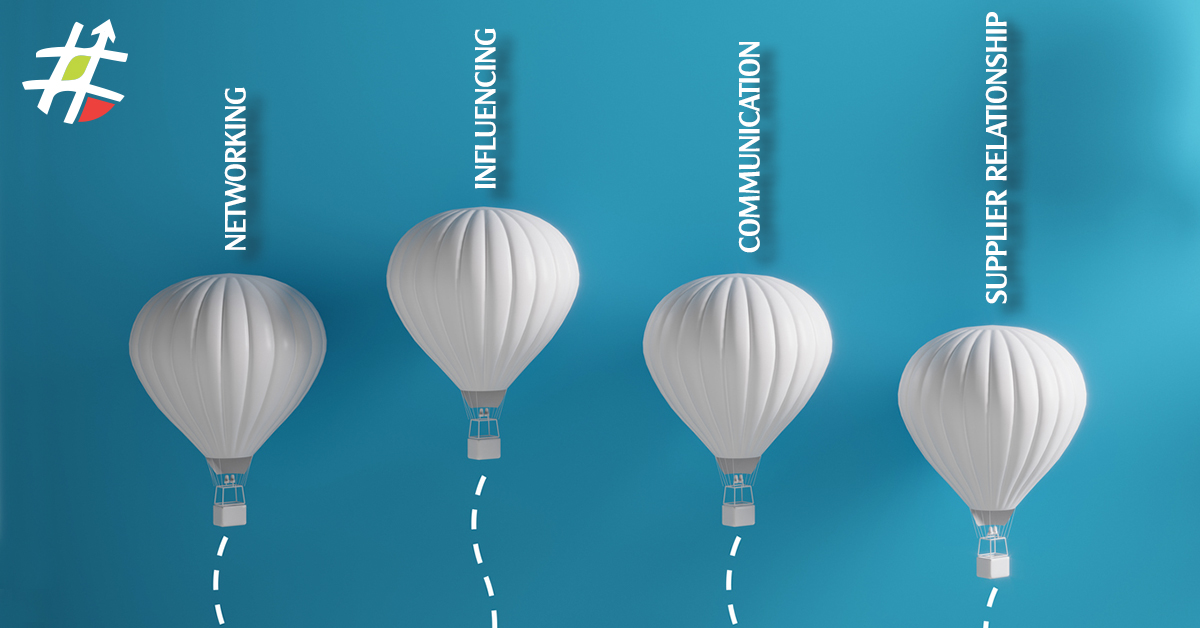
Digitisation has been the buzzword within the procurement industry for the last decade. As such, the focus on soft skills has weakened – until now. A McKinsey Global Survey on reskilling has found that the skills with the biggest increase in focus fall into the social and emotional categories.
So, why the renewed interest in soft skills? In reality, there has never been a time when they haven’t been integral to a procurement officer’s role, and there never will be. While digitisation and tech skills briefly stole the limelight, their implementation has put the focus back on soft skills.
Robotic Process Automation (RPA), AI and machine learning have transformed the procurement workspace, taking over the repetitive, time-intensive tasks, allowing humans to focus on business-critical tasks such as strategic decision making and negotiation – which is the domain of soft skills.
In one sense, the digital revolution has reminded us that some things never change.
What are soft skills?
Soft skills are, basically, non-technical skills. The influence how you work and encompass:
- how you play with others (interpersonal skills)
- time management skills
- problem solving
- listening
- empathy
You’ve probably noticed that some of these could fall under the category of attributes rather than skills. Because they can be classified as intrinsic personality traits, it’s often assumed that you either have soft skills or you don’t. In other words, they can’t be learned. As we’ll discuss later, that simply isn’t true. But right now…
Top soft skills for procurement in 2022
2022 is all about supplier relationships, collaboration and sustainable sourcing. While all of these facets are made easier and more effective with modern software, they are still underpinned by core soft skills. Procurement officers must have the ability to align seemingly divergent goals and get all stakeholders – internal and external – on the same page. Here are the essential skills the modern procurement officer needs.
Communication
It’s an obvious one, and underpins all that follow, but it’s still worthy of its own paragraph. In the context of the procurement industry, effective communication means getting your message across succinctly.
The reality of the modern workplace is that nobody has much time for anything – particularly management. When a procurement officer finally gets a few precious minutes to present their case to [], they need to be quick and effective. You may know that the more expensive supplier is the one to go with because of their sustainability record, but unless you can communicate this in a manner that all stakeholders can understand, the job isn’t done.
Influencing
The days of walking into a negotiation and thumping the table as a tactical manoeuvre are gone. Do this now, and you’ll quickly see the back of your counterpart as they make for the door and another buyer.
Demand is high and supply is low, and it’s in this type of market that we need to become the preferred customer. This means that when goods or services do suddenly become available, we get the first call. To do this takes influence.
It’s no longer about the single contract negotiation; it’s about the broader relationship. We need to take the holistic approach and understand the supplier’s position, bring internal stakeholders along, and put ourselves front and centre in the supplier’s mind.
Supplier relationship management
This is about empathy. Can you put yourself in the shoes of the supplier? What are their concerns? What are their capabilities?
SMEs are valuable to our supply chains, but they’re also vulnerable. It’s not unusual for one company to make up the vast bulk of an SME’s business. If the SME has to up their prices (perhaps due to inflation), and loses that company who instead decides to look elsewhere, that SME will go under.
We have a responsibility to understand exactly what the consequences of our contracts are for the suppliers, what their goals are and how we can all achieve our objectives. This is what leads to strong relationships and suppliers who value their buyers.
Networking
It’s been said before that your net worth is your network. A procurement officer with the right soft skills can meet a stakeholder, make a credible first impression, and understand precisely what they’re looking for. In other words, they listen. A procurement officer worth their salt connects with people from a wide range of backgrounds and absorbs knowledge like a sponge.
Developing these crucial relationships early on is pivotal to stakeholder management; if you have a reputation for understanding goals and objectives quickly and communicating efficiently, half your job is done. Listening well means that when you speak, people listen to you, too.
Soft skills can be developed
Yes, these soft skills can be classified as personality traits, but that doesn’t mean they can’t be learned and developed. If you need convincing, compare how a fresh recruit operates to a seasoned veteran; how we conduct ourselves and how we communicate develops and improves over time.
At Skills Gap Analysis, we have the capability to map your skillset and determine what areas you need to focus on.
Academy of Procurement can then help fast track your transformation. We’ve teamed up with negotiation experts to design and deliver in-depth training that covers the soft skills pivotal to a procurement officer.
Get in touch today.




